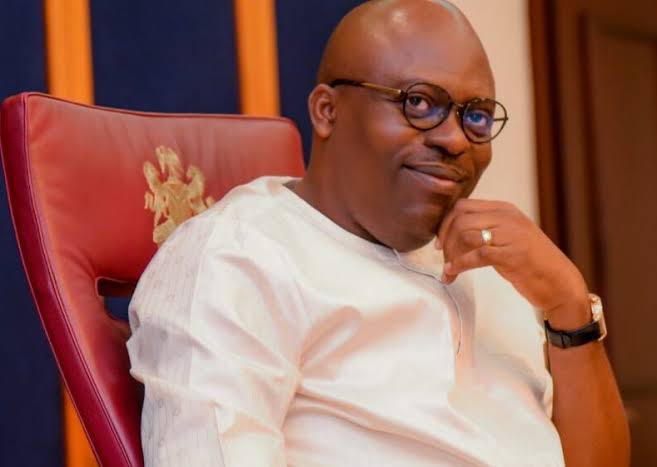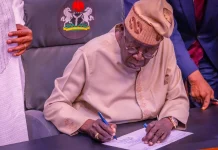February 10, 2025 – The Supreme Court of Nigeria has ruled against Governor Siminalayi Fubara of Rivers State, dismissing his appeal aimed at removing 27 members of the State House of Assembly loyal to Minister of Federal Capital Territory, Nyesom Wike. These lawmakers had defected from the Peoples Democratic Party (PDP) to the All Progressives Congress (APC).
On Monday, the court’s decision came after Fubara’s legal team sought to withdraw the appeal, arguing that the issues involved had been rendered moot by recent developments. A panel of five justices, led by Justice Uwani Abba-Aji, recognized that the matter had been fully addressed and consequently imposed a cost of N2 million on the governor.
Fubara’s attorney, Yusuf Ali (SAN), stated that the withdrawal was appropriate given the changing circumstances. The legal representatives for the Martin Amaewhule-led faction of the Rivers State House of Assembly—Wole Olanipekun (SAN) and Joseph Daudu (SAN)—did not oppose the withdrawal, but they requested that the court dismiss the case outright rather than simply striking it out, alongside the cost ruling.
Previously, on October 10, 2024, the Court of Appeal in Abuja had dismissed Fubara’s earlier appeal concerning the 27 lawmakers, asserting that he had no legal grounds to pursue it after withdrawing his opposition in related proceedings at the Federal High Court.
In his majority judgment, Justice Joseph Oyewole noted that since the governor had voluntarily withdrawn from the case, he could not justifiably claim to be affected by the Federal High Court’s ruling. The appellate court also barred Fubara from meddling in the House of Assembly’s affairs, including withholding funds or dismissing the Clerk and Deputy Clerk.
Additionally, the Court of Appeal instructed Fubara to re-present the state budget to the assembly under the officially recognized speaker, as mandated by Justice James Omotosho of the Federal High Court. Justice Oyewole remarked that Fubara’s error in withdrawing from the suit could not be corrected by any legal measures.
This ruling adds a significant dimension to the ongoing political tensions in Rivers State, highlighting the complexities within the state’s governance and the ramifications of party affiliations on legislative functions. The decision not only emphasizes the intricate nature of political maneuvering in the region but also establishes a precedent regarding the legal implications of party defections and the authority of state governors.








